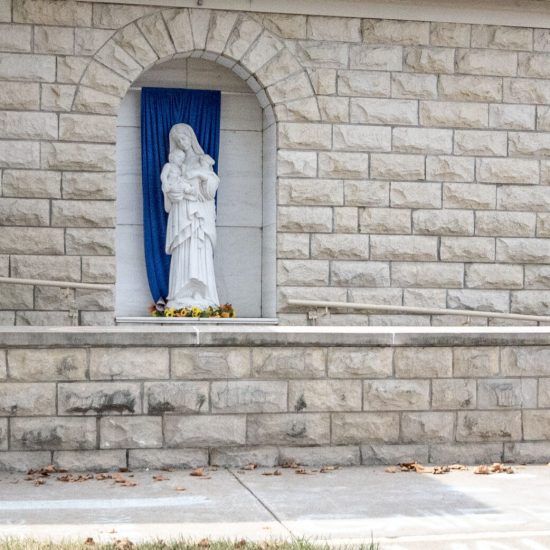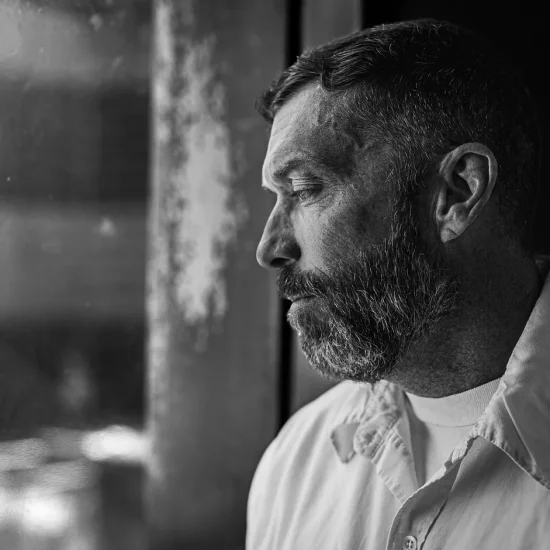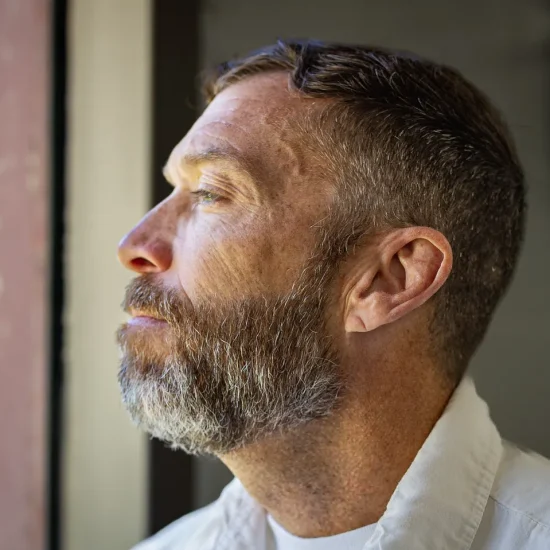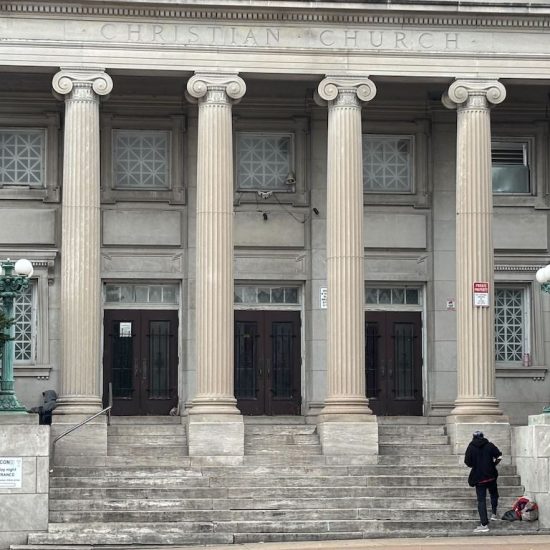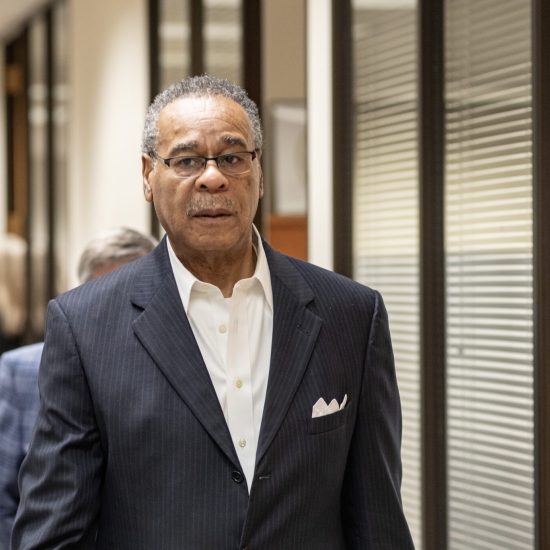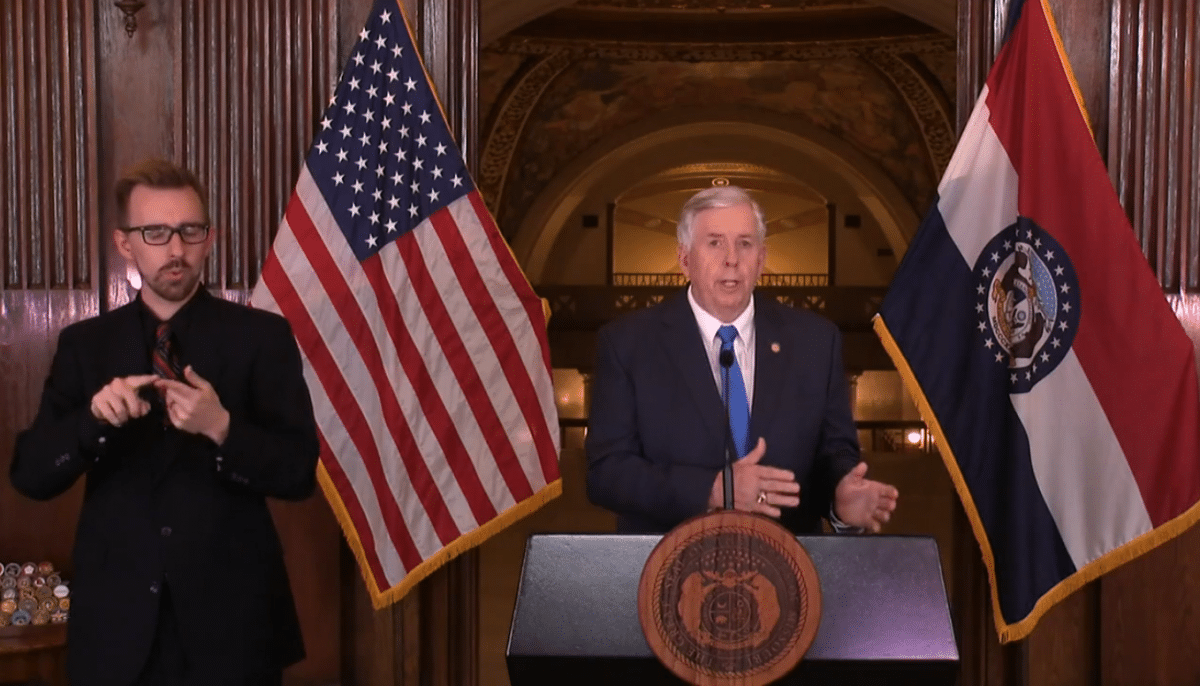
While most pastors across the country work on their video sermons after suspending in-person services to help prevent the spread of coronavirus, some church leaders are pushing for religious exemptions to state bans on mass gatherings — and a couple pastors have even been arrested for defying bans. Amid this nationwide debate, Missouri Governor Mike Parson shifted course on religious exemptions after an April 2 press conference question by Word&Way.
As of April 2, more than one million people globally have been infected with the COVID-19 respiratory disease caused by coronavirus, and more than 53,000 have died. In the U.S., the country with the highest number of infected persons, more than 244,000 have tested positive and more than 6,000 have died.
As medical experts have insisted for months, the key to preventing the pandemic from spreading even worse is the practice of social distancing as people stay at least six feet away from others, stay home as much as possible, and avoid gatherings of more than 10 persons. Governors and local officials across the country have issued various orders to mandate social distancing. However, many of those orders banning mass gatherings include an exemption for religious events like worship services — such as in Kansas, Michigan, New York, Ohio, and Pennsylvania.
Legal challenges and defiant breaking of the bans emerged in states without religious exemptions. A judge dismissed a lawsuit in New Hampshire that included a Baptist Sunday School teacher as a plaintiff, with the ruling backing the governor’s ability to include churches in the ban on mass gatherings. Three pastors filed a similar suit in Houston, Texas, to challenge a local stay-at-home order that doesn’t include a religious exemption. However, before a ruling in that case, Texas Governor Greg Abbott issued an order on March 31 to grant a religious exemption to any local or state coronavirus restriction order in Texas. Southern Baptists in New York City have also raised objections to their mayor threatening to close churches who hold services violating the city’s ban on mass gatherings.
Florida Governor Ron DeSantis also created a religious exemption to his 30-day stay-at-home order on April 1, which he issued two days after a Tampa Bay pastor was arrested for violating a county ban on large gatherings. However, DeSantis’s ruling wasn’t retroactive so charges aren’t expected to be dropped but the pastor will likely be free to hold services in the future. The pastor in Florida was the first of two pastors at large churches arrested this week, with authorities in Baton Rouge, Louisiana, taking a similar action after a pastor defied a ban on mass gatherings for the second Sunday in a row.
On April 1, U.S. Vice President Mike Pence urged churches to not hold in-person services with more than 10 people.
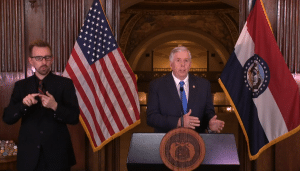
Screengrab of Missouri Governor Mike Parson answering a Word&Way question about religious exemptions to his social distancing order.
While some governors this week added religious exemptions to mass gathering bans, another governor walked back an earlier exemption. On March 20, Missouri Governor Mike Parson, a member at First Baptist Church in Bolivar, Missouri, announced an order requiring social distancing, and he said “this order will not apply to religious services.”
On April 2, Parson offered a new perspective after being asked by Word&Way in his daily press briefing why he had allowed the religious exemption. He didn’t address why but instead argued now that “churches fall in the same requirements as people under the order” on social distancing.
He also mentioned “the important role that [churches] play in this crisis right now,” which is why he said he had been in communication weekly with church leaders. He praised churches that found new ways to worship and minister due to social distancing.
“I’m thankful for all the alternative ways that they’ve been able to provide those religious services to people,” he said.
Among the churches in Missouri who’ve continued to hold services is Hopewell Missionary Baptist Church in St. Louis that the city issued a civil summons against for holding a service with 25 people on March 29. Some Baptist churches in other states have also refused to suspend in-person services, including Friendship Baptist Church in Baltimore, Maryland, where the pastor vows to continue even after police officers showed up during a March 29 service.
Even with religious exemptions in several states, most churches have suspended in-person services. According to a survey released April 2 by the Southern Baptist Convention’s LifeWay Research, the number of churches holding in-person worship services dramatically dropped throughout March — but some still continue to meet instead of shifting to other formats like an online service or a drive-in service.
On March 1, 99 percent of Protestant pastors said they held in-person services, which fell to 95 percent on March 8, 64 percent on March 15, 11 percent on March 22, and just seven percent on March 29. The March 22 number virtually matches a poll of U.S. churchgoers that week that found 12 percent saying their church still held in-person services.
However, the LifeWay poll also found more churches interested in reopening for Easter on April 12. While 47 percent of the pastors said they will not hold in-person services on Easter and 10 percent aren’t sure, three percent said they definitely will, 18 percent said they will if authorities allow it, and 15 percent will if local authorities don’t recommend against it. The latter two groups mean the number of churches open for Easter could surge to four times as many as on March 29 unless authorities take a strict stance against churches holding such services.
While some churches continue to meet, growing evidence shows church gatherings are hotspots for the coronavirus outbreak across the country. At a Pentecostal church in the Chicago, Illinois, area, 43 people are sick and 10 have already tested positive. After services at an Assembly of God church in Arkansas, 37 people tested positive and two have died. After a choir practice at a Presbyterian church in Washington, 45 tested positive and two have died. And most of the cases in Burke County, Georgia, have been traced to Palmer Grove Baptist Church.
Georgia’s state public health commissioner told clergy that when examining the “hotspots” of the virus in the state, “virtually all these cases” are linked in part to “large church services.” And the Sacramento County (California) health chief said that more than a third of the county’s COVID-19 cases were tied to church groups, including 24 cases from a church that continued to hold in-person meetings during the pandemic’s spread.


